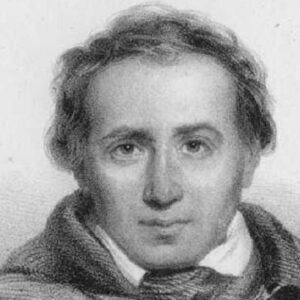In contrast to many of his other contemporaries, Allan Cunningham did not have access to a wonderful education, yet he produced some of the best Scottish literature. Even though the majority of Allan’s novels were written in the first decades of the 19th century, readers are still in awe of the author’s creations today. Allan read and understood other outstanding pieces of Scottish literature, primarily songs, in his spare time even as he worked to pay his bills. Some of the best Scottish writers of his period, including James Hogg, were impressed by Cunningham’s work. Even the detractors of today can’t stop praising the author’s writing abilities. “M. Allan Cunningham once again shows he is one of the bravest and most talented novelists today,” a well-known author of his time was quoted as saying. Even as the narrative carries you along with its dark riddle and heartbreaking tension, his prose sings with a unique form of poetry.
Early Youth & Life
South of Scotland, in a small community named Dalswinton, Allan was born on December 7, 1784. His father remained close to Robert Burns’ house, who is regarded as Scotland’s national poet. James Hogg, a well-known Scottish poet, and novelist were good pals with Allan and his brother James.
At an early age, Allan started working as a stonemason’s apprentice. During his free time, Allan concentrated on his literary pursuits. When Allan sent some of his own poems and a collection of Scottish ballads to then-famous Editor Robert Hartley Cromek in 1809, the latter took notice of his skills. The renowned Scottish author Walter Scott was drawn to Allan’s writing.
Alan Cunningham’s Career
After relocating to London in 1810, Allan spent the following four years working as a journalist and legislative reporter. Following his time as a journalist, Allan began working as a clerk in the Sir Francis Chantrey portrait sculptor’s workshop. He kept on working with Lord Chantrey until his death in 1841.
Allan released a number of literary works even while working as a clerk. The “Traditional Stories of the English and Scottish Peasantry” and “The Songs of Scotland, Ancient and Modern” were notable examples. One of Allan’s most renowned works, “The Lives of the Most Eminent British Painters, Sculptors, and Architects,” was released in six volumes between the years 1829 and 1833.
By editing a book based on the literary works of renowned Scottish author Robert Burns, Allan gave tribute to the latter. The Works of Robert Burns was published in 1834 and included an introduction at the beginning. The introduction, which Allan wrote himself, read more like a biography of Robert Burns.
Alan’s Bigger Productions
Other than writing novels, Allan also penned renowned plays such as ‘Sir Marmaduke Maxwell’ and ‘The King of The Peak’. The controversial existence of Sir George Vernon’s daughter was the subject of Allan’s second play. The play’s major high point was the elopement of Vernon’s daughter Dorothy.
Personal Influence & Life
In addition to James, Cunningham had two older siblings. Thomas Mounsey Cunningham followed in the footsteps of Allan’s sibling Peter Miller Cunningham in becoming a poet. Peter Miller Cunningham was a naval surgeon.
Cunningham got married to his housekeeper Jean Walker.
Five boys and a daughter, totaling six children, were born to the couple. Some of his children even acquired their father’s writing prowess. At the age of 57, he passed away in London on October 30, 1842.
Estimated Net Worth
Allen is one of the wealthiest and most well-known poker players. Our study of Wikipedia, Forbes, and Business Insider revealed that Allen Cunningham has a net worth of $5 million.
Trivia
Despite being one of the most famous authors in Scottish literature, Allan’s writings were criticized for lacking the “class” of a genuine ballad. However, his works’ rhythm was well-liked, and it helped him become famous.


